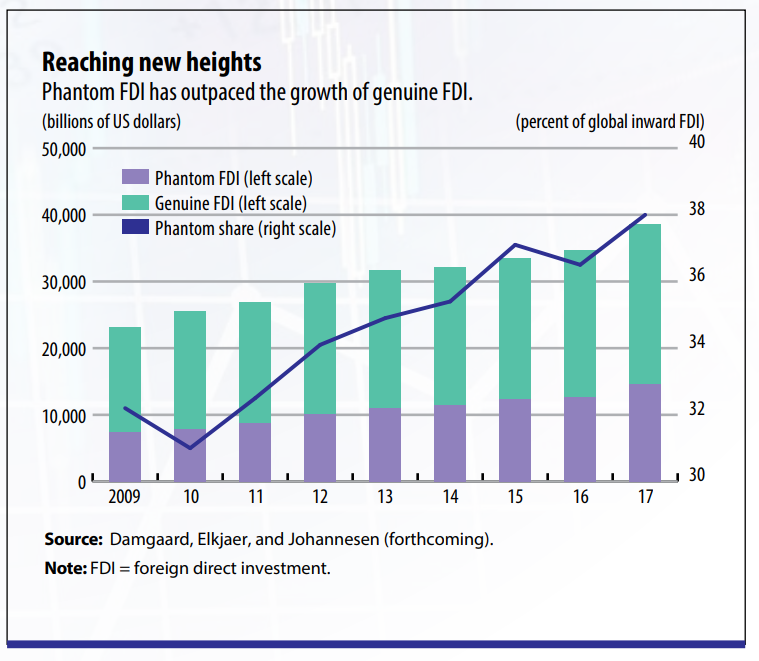IMF Estimates $15 Trillion Of World’s Foreign Direct Investments Are “Phantom Capital”
A new study published by the International Monetary Fund has found that $15 trillion of the world’s foreign direct investments are “phantom capital” – a term used to describe capital that is designed to minimize tax bills of multinational firms.
This total makes up 40% of the world’s foreign direct investments, and is the equivalent to the combined GDP of China and Germany, according to Bloomberg.
These types of investments have risen about 10% over the past decade despite global efforts to curb tax avoidance, according to the IMF study. The capital makes its way through corporate shells that generally have no operations or real business activity.
The study stated:
“FDI (foreign direct investment) is often an important driver for genuine international economic integration, stimulating growth and job creation and boosting productivity. But phantom capital is financial and tax engineering that blurs traditional FDI statistics and makes it difficult to understand genuine economic integration.”
It continued:
“Luxembourg, a country of 600,000 people, hosts as much FDI as the U.S. and much more than China. FDI of this size hardly reflects brick-and-mortar investments in the minuscule Luxembourg economy, whose $4 trillion in FDI comes to $6.6 million a person. Unsurprisingly, an economy’s exposure to phantom FDI increases with the corporate tax rate.”
About half of the world’s “phantom capital” is hosted by Luxembourg and the Netherlands, with just 10 economies globally holding more than 85% of such investments.
The study concluded that “international cooperation” was vital to solving the issue: “Indeed, this year the IMF put forward various alternatives for a revised international tax architecture, ranging from minimum taxes to allocation of taxing rights to destination economies. No matter which road policymakers choose, one fact remains clear: international cooperation is the key to dealing with taxation in today’s globalized economic environment.”
The full IMF study can be found here.
Tyler Durden
Sat, 09/14/2019 – 07:35
via ZeroHedge News https://ift.tt/30it2Om Tyler Durden
